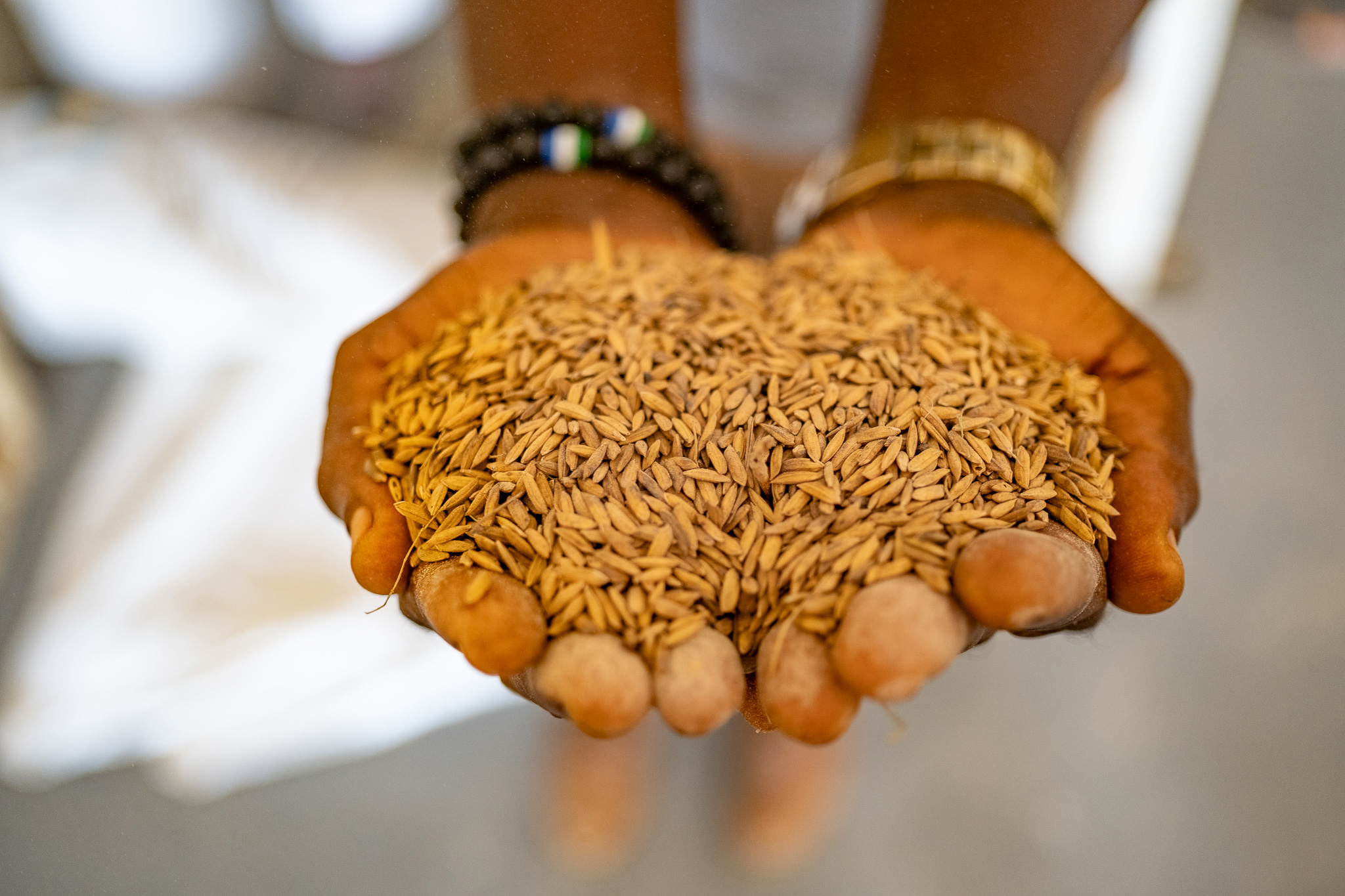areas of Intervention
- To create a sustainable pipeline of high-quality seeds and other inputs required to increase production, the programme will focus on the following key areas of intervention:
- Improve the capacity of SLARI to produce high-yielding seeds.
- Build an agro-dealers’ network across the country, with trained dealers interfacing with farmers.
- Popularise hybrid seeds in the next 3 years, especially for rice and maize.
- Support private sector to establish a fertiliser blending plant and explore large scale organic fertiliser manufacturing options.
- Establish district clonal gardens for cash crops value chains.
Overview
Increased agricultural productivity depends on the appropriate use of inputs ranging from seeds to fertilizer and pesticides, among other factors. The rudimentary state of the formal seeds system and the resulting lack of access to quality and viable seeds continues to be one of the main constraints to increasing agricultural productivity in Sierra Leone. In addition to the absence of improved variety of seeds in the market, their high cost, the generally low levels of income of smallholder farmers, and the absence of credit options to obtain seeds contributes to the use of poor-quality seeds. To address some of these challenges, in September 2023, leading researchers, scientists, policy makers, and international organisations in the seeds industry across the world converged in Freetown and developed a road map and a set of recommendations to address some of the major challenges in Sierra Leone’s seeds industry.
Other important factors that limit productivity are the limited access to fertilizers, pesticides and other agrochemicals. To address these challenges, the National Fertilizer Regulatory Agency (NFRA) was established by an act of parliament in 2019 to regulate and control the manufacture, importation, distribution, sale, and use of fertilizers in Sierra Leone.


As part of the government’s efforts to move away from a public sector led procurement and distribution of inputs, an e-voucher system was introduced in 2021 to deliver agricultural inputs (including fertilizers and other agrochemicals) to farmers in a transparent and efficient manner. In the context of the Feed Salone initiative, the government will continue to remove bottlenecks that hinder the private sector’s participation in the inputs sub-sector through the provision of the Agricultural Credit Facility (ACF) scheme to agro-dealers and encourage SMEs/Agribusiness/Business Development Service Providers to serve as input dealers through the e-voucher system.